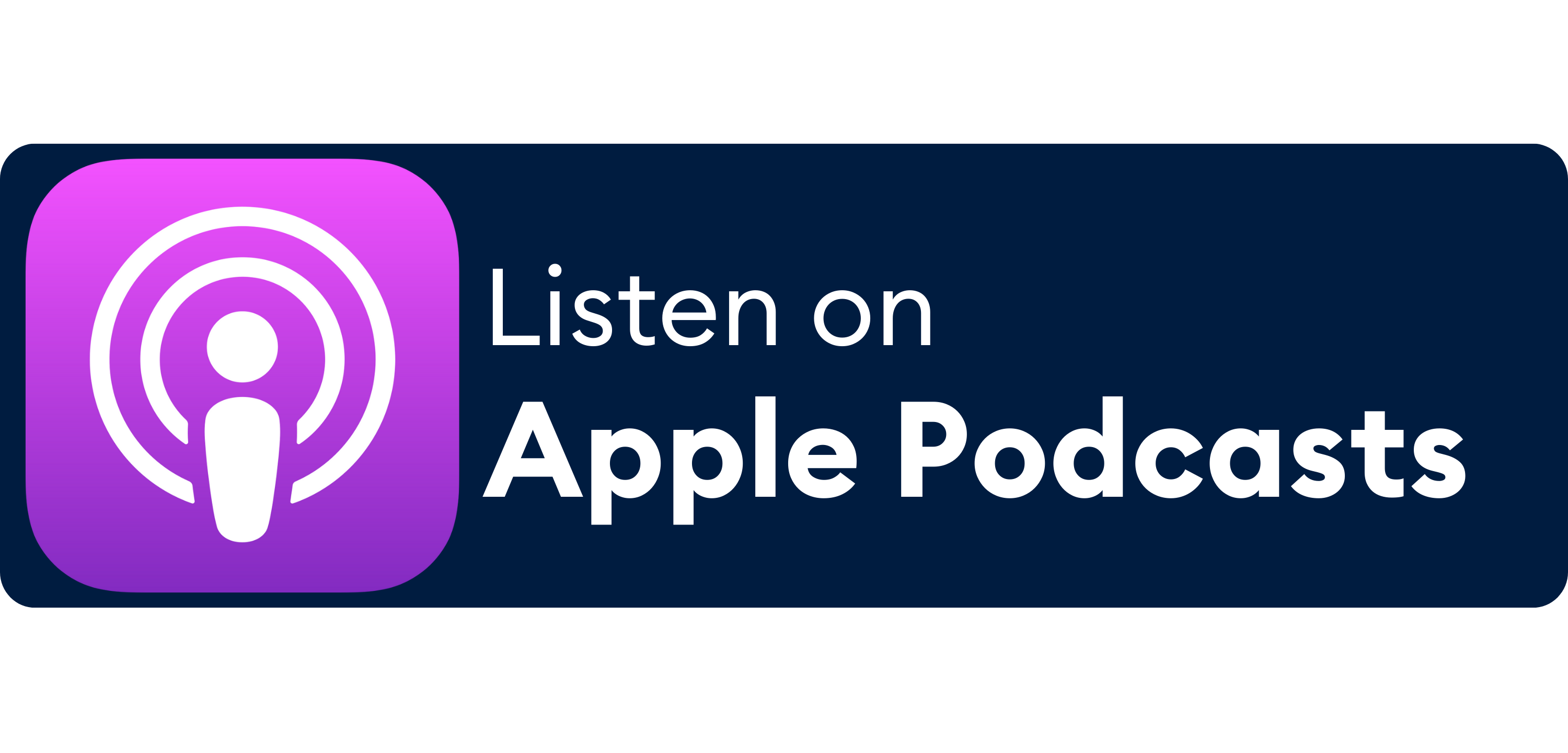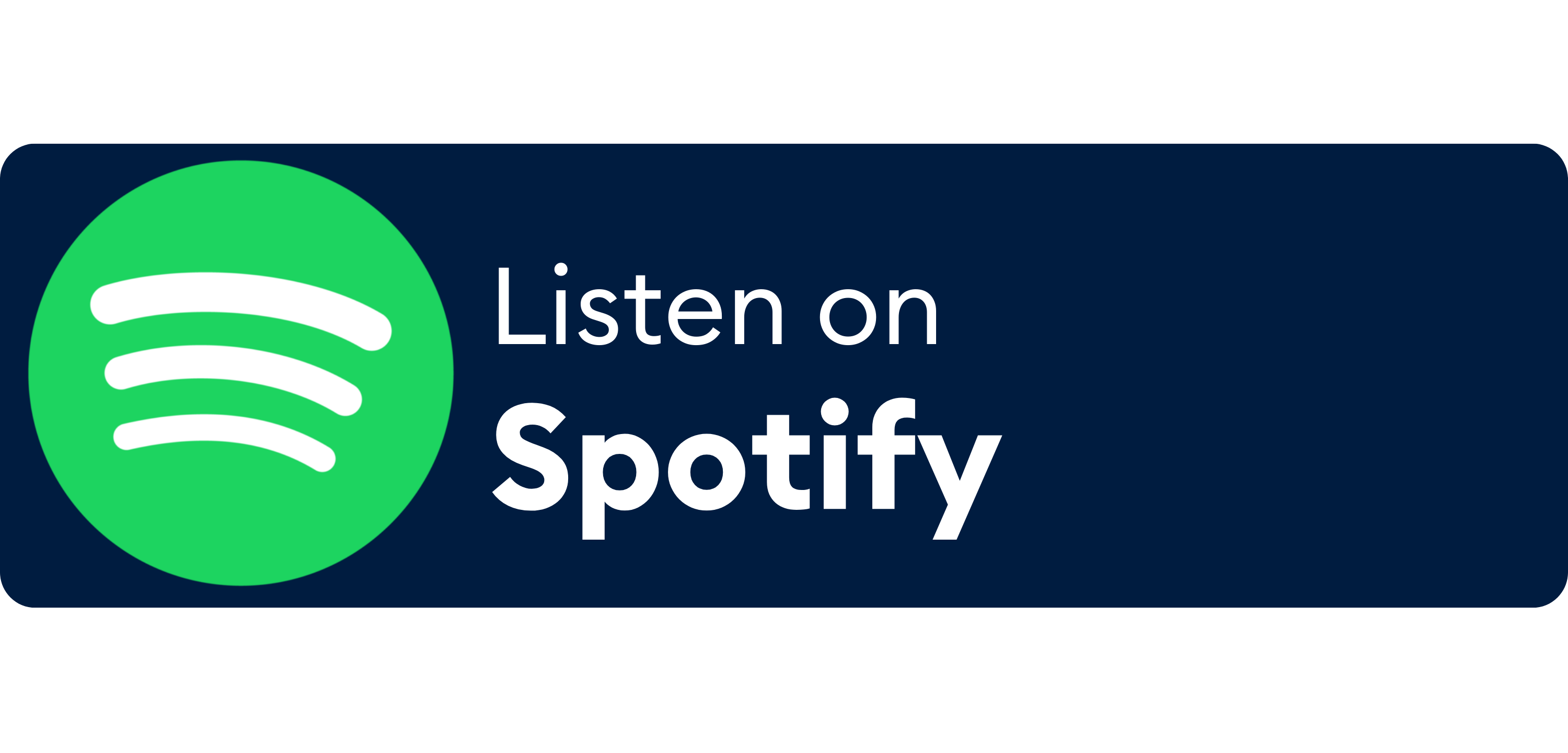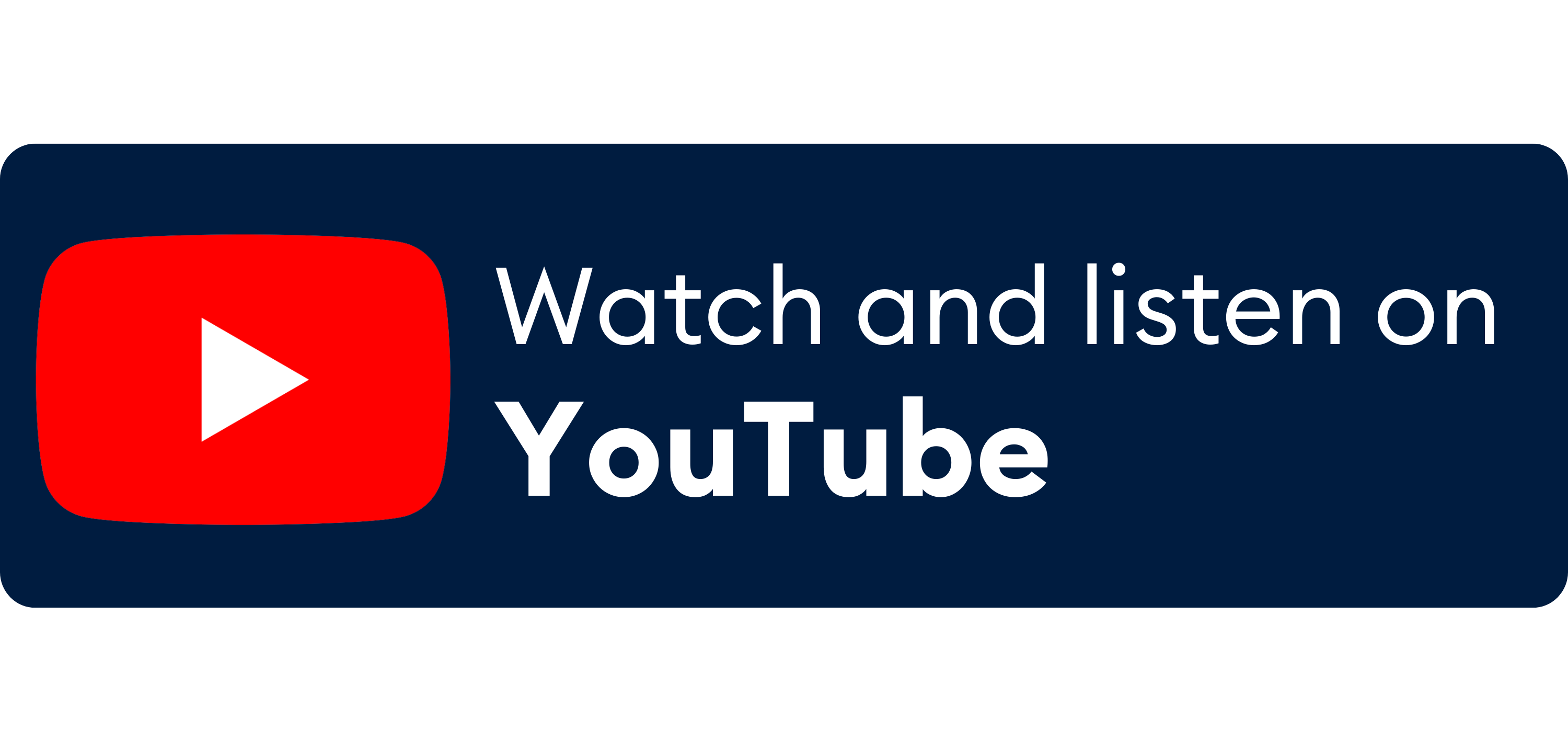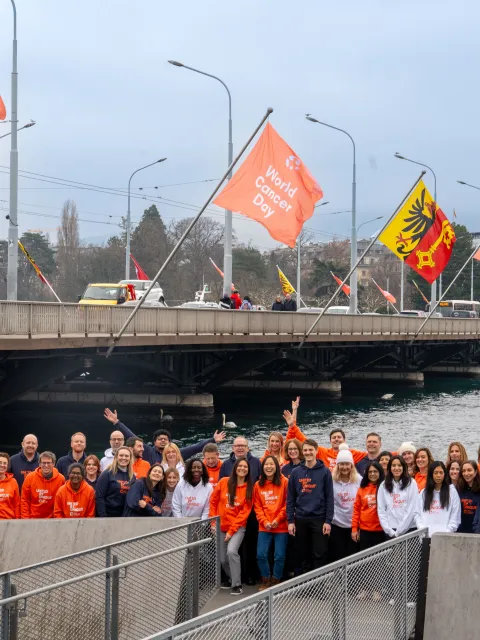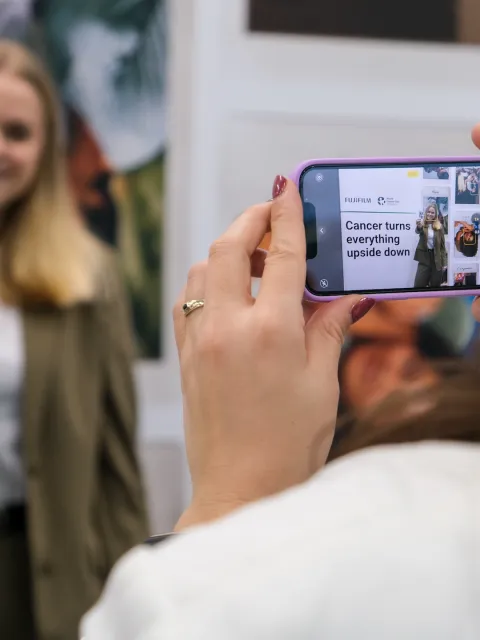Podcast "Let's Talk Cancer": Overcoming eight cancer diagnoses on the way to wellness

Jim Tennermann, who has been diagnosed eight times with cancer, says it is important not to dive into self-pity but instead engage in a passion; his are guitar and cycling.
Jim Tennermann was diagnosed with cancer eight times since first discovering he had a brain tumour almost 30 years ago.
Jim Tennermann, researched and writer from Boston, Massachusetts, was first diagnosed with a brain tumour in 1995. His journey with cancer had just begun. In subsequent years, he was diagnosed with two types of skin cancer, kidney cancer in both kidneys, prostate cancer, lung cancer, and two rare cancers: pleural mesothelioma, which develops in the tissue lining the lungs and chest, and peritoneal mesothelioma, which develops in the thin layer of tissue lining the abdomen.
A long series of treatments followed – from hormonal treatment and radiation to surgeries on his brain, abdomen, lung and skin.
In the lead-up to World Cancer Day on 4 February – a global awareness day led by UICC – Cary Adams speaks with Jim about his extraordinary patient journey, the life lessons he has drawn from this ongoing experience, and the knowledge he can impart to the millions around the world living with a cancer diagnosis.
"Sometimes you need to embrace it, sometimes you need to swim with it. It's a part of you. I's not really an alien who has descended and somehow invaded your body."
– Jim Tennermann, diagnosed eight times with cancer.
See podcast transcript below
Listen on: Spotify | Stitcher | Apple Podcasts | Amazon Music | Audible | Deezer
Get notified of new podcasts by email
Podcast transcript
Cary Adams: Hello, This is Cary Adams, the CEO of the Union of International Cancer Control in Geneva, Switzerland. Welcome to Let's Talk Cancer. Imagine or maybe you've experienced the intense emotions that come with receiving a cancer diagnosis, a blend of disbelief, fear, anger, despair, embarrassment, and how it forces you to face the prospect of death. Now, imagine it. More than eight times over. Jim Tennermann from Boston, Massachusetts, was first diagnosed with a brain tumour in 1995. His journey with cancer had just begun. In subsequent years, he was diagnosed with two types of skin cancer, kidney cancer in both kidneys, prostate cancer, lung cancer, and two rare cancers: pleural mesothelioma, which develops in the tissue lining of the lungs and chest and peritoneal mesothelioma, which develops in the thin layer of tissue lining the abdomen. A long series of treatments followed from hormonal treatment and radiation to surgeries on his brain, abdomen, lung and skin. As we head towards World Cancer Day on February the fourth, a Global Awareness Day led by UHC, there's no better time to speak to Jim and hear his extraordinary patient journey. Jim, welcome to Let's Talk Cancer. Delighted to meet you.
Jim Tennermann: Thank you. Good to be here.
Cary Adams: Jim, your story is, I think, without any doubt a unique story that I've not heard of any other human being in the time that I've been doing this job. What was your reaction when you were first diagnosed with cancer?
Jim Tennermann: I remember it clearly. I somehow ended up at the hospital into the emergency room and they did an imaging test and I was lying on a bed in the hallway and a neurologist comes out and says, Mr. Tennermann, you have a brain tumour. And I sat bolt upright and and screamed, No, I won't redo the scream here. But I was just in disbelief.
Cary Adams: How old were you then, Jim? How old?
Jim Tennermann: I want to say about 36. Is that right? It's about right. In 1967, my father died from a brain tumour. And I always had it in my mind that if any such thing should happen to me, there's no way I was going to let anyone tamper with my brain. I changed that opinion the day I got that diagnosis. So, yes, I was in a state of disbelief for a couple of days. Hard to process. I'm pretty sure it's hard to process for most people. I called my brother, who also lived in Boston at the time, and he was in the city where the hospital I was treated at is located, and he ran out of his office and came to see me and we just looked at each other and shook our heads. So that's how it started.
Cary Adams: I'm sure it's a shock to you and the whole family, particularly given your father's record with cancer. You've been living with cancer for a long time. When you were first treated and the tumour was removed, were you anticipating further problems or were you at that point thinking, Right, I've sorted it out. That's done. And if so, what happened next time around? How did that happen?
Jim Tennermann: I did assume it was done. And on that day, there were actually two different tumours diagnosed, one large one and a smaller one just over my right eye again inside the skull. The first surgery was kind of extreme. The tumour was large. If you think about something like a hamburger, it was about that size, my word. So that went really well. And about seven months later, the second tumour was removed. I felt like an experienced patient at that time since I had been to the neurosurgery. And it did go really well and I was discharged in like three days. It seemed like things were back to normal, except for some odd scars. I assume that was the end of it, and it really was the end of it for a few years. So I would go back for an MRI first every six months and then every year. And then we just stopped after maybe six years. So one day I was into my annual checkup seeing my primary care physician, and he said, You know, we haven't done a seat of your brain in quite some time. I'm going to schedule that. And he did. And I had that imaging test and that doctor called me up and said, Jim, you have a brain tumour. That's like a replay of the entire scenario. There was not quite as disturbed as I was the first time around, but it was pretty shocking. That led to two additional craniotomies before they could get that thing out.
Cary Adams: Was there anything that helped you with the recovery?
Jim Tennermann: I'm a cyclist and I have been for a long time. With the first diagnosis in 1995, it was a rough in June and I couldn't work for a couple of months. But I did get on a bicycle and I thought that I could ride myself back to health, and I pretty much did. So my first effort was on a stationary bike in the home I lived in that lasted about 60 seconds, and I just went to bed and went to sleep. After that I realised that the body needs time to heal. But if you do something extreme and run or get a lot of exercise, your energy gets diverted to those muscular needs and away from your healing. Bad idea. I would advise anyone post-operative to not get on an exercise machine right away. But as days went by, I did get on a bicycle and went a little farther every day. And one day I rode my bicycle to my office, which was 12 miles away. It was a beautiful summer day, and I remember stopping on a hill near a farm and looking out over the landscape and thinking, I'm back. And many cyclists are obsessed with metrics as I am. I have details of every ride I've been on since the early 1990s. I don't know why I'm obsessed, but it is a way that you can measure yourself and your progress and it's a little easier to do that than it is to see a doctor every now and then and get their updates. So that has been good for me, I think to find a passion and to stick with it. It is good for most people.
Cary Adams: You've given a pretty clear sign that the doctors have been very good for you. And it sounds like every time you've had treatment, it's been top class. Is there been any point during that journey when you feel or the doctors have said that this is going to be difficult, This this one is more difficult than the previous cancers that you've had?
Jim Tennermann: Yes, that did happen in 2018. That was a diagnosis of pleural mesothelioma. The treatment for that is pretty harsh. The doctor who did that has a very large staff. I think it's the largest thoracic surgery department anywhere in the east coast of the United States. And he warned me that it was a tough procedure and I've seen his various residents and assistants and they all warned me that it was a tough procedure. I was really filtering that out. I didn't want to hear how hard it was. I was in the hospital for three weeks and really I could barely walk when I got out of there. That was a very tough recovery and it's a risky procedure. And then the hot chemicals are circulated in the chest cavity. That was a hard one. And that is the one that left me with a disability. Which is to say that that was on the right side of my chest, the right lung no longer ventilates correctly. So I now have the capability of a guy with one lung. I look at a set of stairs now and I look for the elevator after I see the stairs. It's not been the same. So I've struggled with that one. And I would say that life is different now and this is my new normal.
Cary Adams: That must have been really difficult, especially with your love of cycling.
Jim Tennermann: As a cyclist, I found I didn't have the power to get on a bicycle again, which made me almost depressed. It was just such a terrible thing. I tried so many times and I was saved by a neighbour, another cyclist who had an e-bike and he said, Why don't you try this? It was a mountain bike. And I got on his bike and thought I'd ride around the block. It made enough power that I could ride it without having to stop to catch my breath. So I meant to ride around the block. But I went into the local forest and I came back 40 minutes later. It was as if life had been renewed. So that's been great for me. That and the guitar keep me going.
Cary Adams: A lot of people use metaphors like describing their fight against cancer. I think without doubt, we can say you've had a war against cancer. If we use those metaphors. What are your thoughts about such words when we talk about fighting cancer or the cancer being the enemy? Or, the battle against cancer. Is that something that you feel summarises what you've been doing.
Jim Tennermann: That's a good question. Thank you for asking that. One of the challenges of being the cancer patient is people say you're a fighter or if you're not doing so well, you need to fight harder. And frankly, it irritates me to hear someone say to me, you need to fight harder. It's not that easy. And I don't think it's about a fight. So metaphorically, I would say that a fight has to have outcomes: you win or you lose. So you're fighting all the time. It's a binary outcome. And you would think that if that were your only option, you eventually get tired and lose. Now, whether that's exactly true or not, physically, I think it's a psychological position that doesn't feel good. And I have learned over the years that fighting is part of it and you need to do that sometimes. And other times you need to just dodge it for a while. Sometimes you need to embrace it, sometimes you need to swim with it, swim upstream, swim cross stream. It's a part of you. And it's not really an alien who has descended and somehow invaded your body.
Cary Adams: Now, you've been going through cancer treatment and care for many, many years. Have you witnessed the advances in terms of detection and treatment and the way in which the doctors, the oncologists have been able to treat you over that time?
Jim Tennermann: I have seen that very recently. In 2010, I was treated for prostate cancer and the chosen treatment at that time was start on hormones and then radiation therapy. And it worked pretty well. But actually that disease recurred about a year ago and I just finished treatment for it two weeks ago. It took a little while to go through the diagnostics, but the imaging technology is so far ahead of what was available in 2010, it's spectacular. Allows a complete visualisation of the tumour. And I think in 2010, you know, that they didn't have that capability. It's all based on some almost blind biopsy activity, and now it's a three-dimensional image. It's a combination of PET scanning, CT and MRI and ultrasound. So super accurate visualisation and therefore the treatment in this case, it was radiation. Again, completely different type of machine, very focused as the disease had not left the prostate gland. And again, it's you know, I think that about two millimetre accuracy with that beam, you can probably tell that I have an engineering background, so I like the machinery. I was stunned how much better it is.
Cary Adams: Have you sat down with anyone to try to understand why cancer has played such a major role in your life? Because this is such a unique story. Is it confounding people or is there an explanation, do you think?
Jim Tennermann: Well, it definitely confounds people and there is an explanation. After the first mesothelioma, I sat with a genetic counsellor who was very wise and observant and she suggested a genetic test that had just become commercially available. The gene she was interested in is called BAP1. So we did that test. It took a while to get it back and I have a BAP1 mutation. BAP1 mutation is associated with what is called tumour predisposition syndrome is directly related to mesothelioma to kidney cancer, possibly brain tumour is called meningioma. That was a good explanation and frankly, I was relieved to hear it because the world around you, sometimes you might sense that. They're blaming you. You haven't lived well. You've abused yourself. I lived pretty well. Maybe abused myself a little. And to have some other causative factor did, in fact, give me some relief. It also provided a lot of focus as to future surveillance of things to look at on a regular basis. And that's how it has gone. In my case, it was called a germline mutation. And as I said, my father died young. His father died young. There were no such tests at that time. But I did manage to turn up the death certificate for my paternal grandfather, and he died from a peritoneal mesothelioma, suggesting that that was the bad apple part of my family and that that gene was passed down and I was the lucky guy to receive that.
Cary Adams: And what about your brother? You mentioned your brother earlier. Has your brother been tested?
Jim Tennermann: My brother passed away in 2008.
Cary Adams: Oh, I'm sorry.
Jim Tennermann: From liver cancer. And he had also been treated for bladder cancer. And there was a real question as to whether he had that mutation. We just didn't get a chance to find out. My genetic counsellor said you should talk to his children. Because if he had it, then there's a 50% chance that they would each have it. And two of the three were tested immediately and relieved to not have that mutation. And the third doesn't want to know which types of decisions that people will make and said, I don't want to know. Just don't tell me.
Cary Adams: Yeah, I guess it's down to everyone's personal choice on whether they want to know that information or not. Fascinating. It's run through your family, and I'm so sorry about your brother as well. It must have been particularly heart-breaking given you have survived so many cancers. It must be difficult for you to see other family members affected.
Jim Tennermann: It is. And my brother was six years older than me and he died in his fifties. So I have outlived him. But the small tragedy was he died in 2008 when I was home recovering from that recurring brain tumour surgery. And when I was discharged home, you don't do much directly after such a procedure. And he died two days after I returned home. So we were like ships passing in the night. I never really got to see him when it was clear that his death was imminent, which still bothers me today. But that's that's how life unfolds.
Cary Adams: The tragedy of cancer is it actually affects so many of us. I've not had cancer, but I've lost so many good friends, family to the disease. But I'm comforted by the progress we're seeing, as you articulated in terms of the way in which you can detect it early, treat it much better than we were in previous years, and that gives me comfort to the future. Now, you've written a book, Jim, about your patient experience and probably a very unique book. So tell us about the book.
Jim Tennermann: It took me a year to wrap my head around what this book would look like, and I have decided that I want it to be. A short and succinct handbook for people who have this diagnosis. Because you don't always know what to do and there are some things you need to do, and these are the things that you are rarely told by others when you receive a diagnosis that has the word cancer in it. Everything changes in a second. Many people feel like they have been pushed off the cliff. They can't even finish their conversation with the doctor who gave them that diagnosis. I have confirmed this with many people who've had that diagnosis and many doctors. I realised that what happened to me in 1995 is I was wracked with self-pity and it's a kind of terrible thing. You know, you look out the window and it happened to be summer in Boston at that time. And people are out there in T-shirts and looking good and starting to get a tan. And I'm sitting in the room going, Why me? What did I do to deserve this? And, you know, when you have that in your mind, it crowds out everything else. And at that time, you need to be preparing for a journey that you're not prepared for. I in this book will advise people who have received that diagnosis that the first thing they need to do is get a grip on themselves. You need to have both feet firmly on the ground because you need the full use of your brain. You need to make decisions. You need to listen and you need to learn. And you can't really do that when you're buried in self-pity. So fortunately, there are some easy ways. There's some actual simple and easy ways to kind of stop that self-pity in its tracks. So that's the first thing. And then it progresses through other subjects. I could go into great detail, but I'd rather finish the book and send it to you.
Cary Adams: I will be delighted to receive it and read it. And of course, we will let people know about it as well. So please, when you've done it, send it through. It will be a delight to read it.
Jim Tennermann: I absolutely will.
Cary Adams: Can I ask a question about financials? This is something which is another burden that many people go through around the world. It's a diagnosis. A cancer is not only a diagnosis of an illness that needs to be treated, but it's also can be a tremendous stress on them in terms of their financial welfare. Your situation in America, obviously in Boston, how has that affected you financially? Have you been sufficiently covered on insurance? Has it been able to cover all the costs of it? What's the situation there?
Jim Tennermann: Well, I've been very lucky. Yes, I was covered by a health insurance. I pay some amount of money that is tolerable for me. But I do realise that not everyone has that kind of insurance. And it's a little odd. In the United States. Your health insurance comes from an employer that is not provided by anyone else or by the government. So if you're unemployed for even a month, you might find yourself in a period where you have no health insurance. Here in the US, we pay a lot of money toward insurance. But I've been in the pocket the whole time, so to speak.
Cary Adams: I have the privilege of living in Switzerland, a wonderful country. And, you know, we certainly we pay health insurance individually. But I've recently had surgery and it was all covered or paid for. And you know that that privilege and it is a privilege because there are so many societies where that doesn't happen. And as we approach World Cancer Day and talk about inequities around the world, this is one of the issues that we do need to talk about. People don't like talking about the money side of it, but we do. Well, I've got to say, just talking to you is inspirational. And I do hope that you just said you finished your latest treatment. So hopefully things are okay at the moment. How do you feel? Are you okay? Are you going to play that guitar today that's behind you? I can see it. No one else can. Are you going to go on a bike and go into the woods?
Jim Tennermann: I'm feeling pretty good. You know, I was playing the guitar before before we started this meeting today. I'm working on getting back to my new normal.
Cary Adams: We're glad that your new normal includes talking to us and inspiring people around the world. So, Jim, thank you very much for your time. I really appreciate it. I'm sure everyone who's heard this will be inspired by your story. Looking forward to the book coming out in the future and hopefully we can meet up at some point. I'd love to come to Boston again, So thank you very much, Jim. Have a great day.
Jim Tennermann: Thank you very much. Appreciate it.
Cary Adams: If you enjoyed this episode of Let's Talk Cancer, please leave us a review and follow us on Apple Podcasts or Spotify. And also, please join the World Cancer Day Day campaign on the 4th of February.
Last update
Friday 08 September 2023